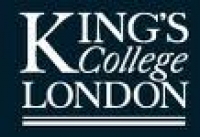This programme combines the comparative study of world literature with special attention to the literatures and cultures of the Classical world. Many of the staff in both Classics and Comparative Literature research how these classical works have influenced later literature, but from different viewpoints – you will have the opportunity to compare these different approaches as well as literary genres, themes and contexts.
The Department of Comparative Literature at King's includes 12 languages and 6 continents, and spans over 2,500 years. Unlike many other programmes, our degree extends beyond the modern literatures of Europe to the Americas, Australia, China, the Middle East, South Asia and Sub-Saharan Africa.
King's Department of Classics is acknowledged as one of the very best in the country, for stimulating teaching and overall quality of student experience as well as for cutting-edge research; the variety and flexibility of its teaching fully reflects the richness of the subject. Classics embraces the cultures of Greece and Rome (their languages, literature, thought, religion, art, archaeology and history) and their influence on later ages. The department of Comparative Literature provides research-led teaching with a unique global and historical reach acoss the world's literatures. While developing existing strengths in modern Europe and the Americas, in recent years we have expanded into Middle Eastern, Asian and African literature.
Studying Greek and Latin is encouraged, and, if pursued, you would be studying major works of classical literature in the original language by the end of your degree. You may also begin or continue other languages at our Modern Language Centre, or take options from the departments of French, German, Spanish or Film Studies.
A King’s Classics degree will equip you with the transferable skills of research, analysis, presentation and critical thinking that are valued by future employers. Our alumni enter a wide range of professions, including law, banking, the civil service, information technology, librarianship, education, heritage industries, the media, journalism and the performing arts. A significant proportion proceed into higher professional or academic qualifications, often pursuing postgraduate degrees at King’s.


